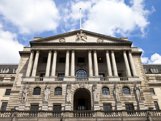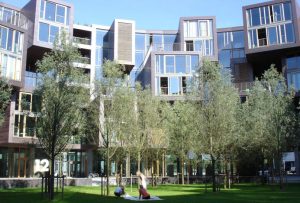The Bank of England raised the base rate to 0.75% – how will the real estate market react?
 On 2 August, for the first time since November 2017, the Bank of England raised the base interest rate by 25 basis points to 0.75%. This is a record rate over the past nine years – so the financial regulator is trying to slow down inflation from 2.4% to a target value of 2.0%. How will the real estate market change?
On 2 August, for the first time since November 2017, the Bank of England raised the base interest rate by 25 basis points to 0.75%. This is a record rate over the past nine years – so the financial regulator is trying to slow down inflation from 2.4% to a target value of 2.0%. How will the real estate market change?
Due to the growth of the key rate mortgage loans will rise in price. According to the calculations of The Guardian, an additional 0.25% will add an average of £ 25 per month to a loan worth £ 200,000. However, according to the publication, 70% of borrowers in the UK pay loans at fixed rates, so the majority of Britons will not feel the changes. According to the Building Societies Association, the number of loans issued for the purchase of residential real estate decreased by 3.7% to 75.9 thousand year-on-year by June 2018.
The number of loans issued for the purchase of residential real estate in the UK
Over the past ten years, the cost of residential real estate in the UK has increased by 20%. According to the latest data of Her Majesty’s Land Registry (HM Land Registry), in May 2018 its average price was set at 226.4 thousand pounds sterling – 0.1% more than in April and 3% more expensive than a year earlier . However, the annual price increase slows down: for example, in April it was 3.6%.
Property in London is twice as expensive. In summer, analysts observe seasonal growth, but at an annualized rate prices are falling: in May 2018, the average cost of housing was 478.9 thousand pounds sterling – 0.1% higher than in April, but 0.4% lower than a year earlier . In April, the dynamics in annual terms amounted to -0.3%.
Average cost of residential real estate in the UK and London
The number of transactions with residential real estate is declining: in June 2018, 107.8 thousand residential properties worth more than 40 thousand pounds were bought, which is 9% less than a year earlier. According to the Monetary Policy Committee, one of the reasons is the slow increase in real incomes of the British: according to official data, their annual growth by the first quarter of 2018 was only 0.3%.
How has the UK property market changed over the last year
The official forecast of the Bank of England after the increase in rates – real estate prices will continue to increase by 3% per year, and the number of transactions will grow slowly. In general, the UK economic scenario remains favorable: according to the calculations of the financial regulator, the annual GDP growth rate will accelerate from 1.4% in 2018 to 1.7% in 2021, and inflation will drop to 2.2% in 2019 and reach 2, 0% already by 2020.



